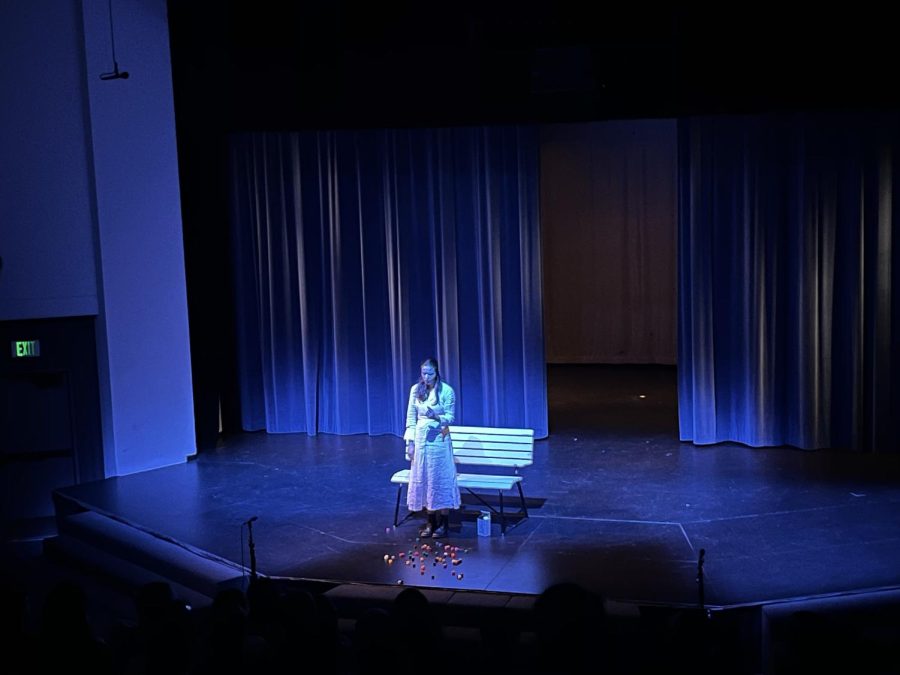Diversity in Lakeside Theater: A Complicated Question
“Theater is the one field where what you look like can be the basis of hiring,” says Co-Drama Department Head Michael (Micky) Place. “The theater world is both fraught with complications of representation and the frontier of embracing an explicit and hopefully thoughtful conversation about how to represent the stories that we all want to hear.”
Lakeside’s theater department, in many respects, has taken significant steps toward encouraging diversity, equity, and inclusion (DEI); this year, the fall play and Circus – Lakeside’s festival where one-act plays written by Drama 4 students are directed and acted by other students – were both open to the whole school where they had previously been reserved for drama students. The It and the spring musical Matilda, along with other recent productions, don’t typically call for any specific race to play certain roles, opening up the opportunities to embody these characters to people of all racial and ethnic identities. Circus is a major way for drama students to incorporate their voices and experiences in the creative process. These shows encourage Lakesiders to “lead with their own voices and perspectives” and represent the student experiences in ways that other plays can’t, says Micky. Additionally, at all levels, drama classes are mostly reflective of the school community’s racial makeup.
The conversation becomes more complicated when discussing the diversity in Lakeside theater productions. Lakeside musicals for the past few years have all been relatively contemporary (Mama Mia, Mary Poppins, and most recently, Matilda) with modern themes that allow better representation and open up roles to students of any race and ethnicity. On the other hand, these musicals all have (more or less) Eurocentric origins and may still discourage student participation: the cast of Matilda is 40% students of color and the musicals are typically only around 30-45% students of color (compared to Lakeside’s 55-60%). Micky wonders if one way to encourage more students of color to participate is by doing more shows that empower and center communities of color such as In the Heights or West Side Story. However, this would be tricky: since Micky and Co-Department Head Alban Dennis are both white, they don’t feel it’s always appropriate for them to be directing culturally specific shows.
One possible way to better ensure DEI in Lakeside theater is to reinstall the fourth performance slot – the spring play. Due to scheduling and pandemic complications, the drama department had only done three shows – the fall play, the musical, and Circus – each year for the past four years. Reopening the slot for the spring play could be an opportunity to hire outside directors of color to lead the process of exploring culturally specific shows. However, this process would require active communication with the affinity groups, the DEI team, and the student body. In 2015, the drama department had hired a Black director to direct a play set in Antilles called Once On This Island. Students were asked to embody characters outside of their own cultural experiences. This was something that they were not comfortable with, and the process subsequently met strong resistance.
Another difficulty was ensuring DEI without representing just for the sake of representation. It’s important that students still feel genuinely engaged and inspired throughout the creative process instead of making it artificial and forced. Striving towards diversity in theater might be a double-edged sword: representation on stage can be incredibly empowering, but it can also be harmful and misleading when not done right.
Ultimately, diversity in Lakeside theater is a complicated question. It will take time and lots of trial & error for the drama department to figure it out. But that’s alright – theater itself is an art of paradoxes, as Micky says. “It’s scripted, but it’s also in the moment; it’s you playing the character, but it’s not really you.” So is casting based on diversity another paradox, for how and why and for whom we tell these stories? There’s no clear answer yet for Lakeside drama, but there are certainly conversations to start.
Hallie X ‘23 has spent much of her time over the past three years contributing to Tatler’s collection, amassing over 20 articles in total. She covers...
By day, Lorelei is a committed humanities student and a lackluster STEM one who spends every free moment in the drama office and/or sipping a complimentary...

